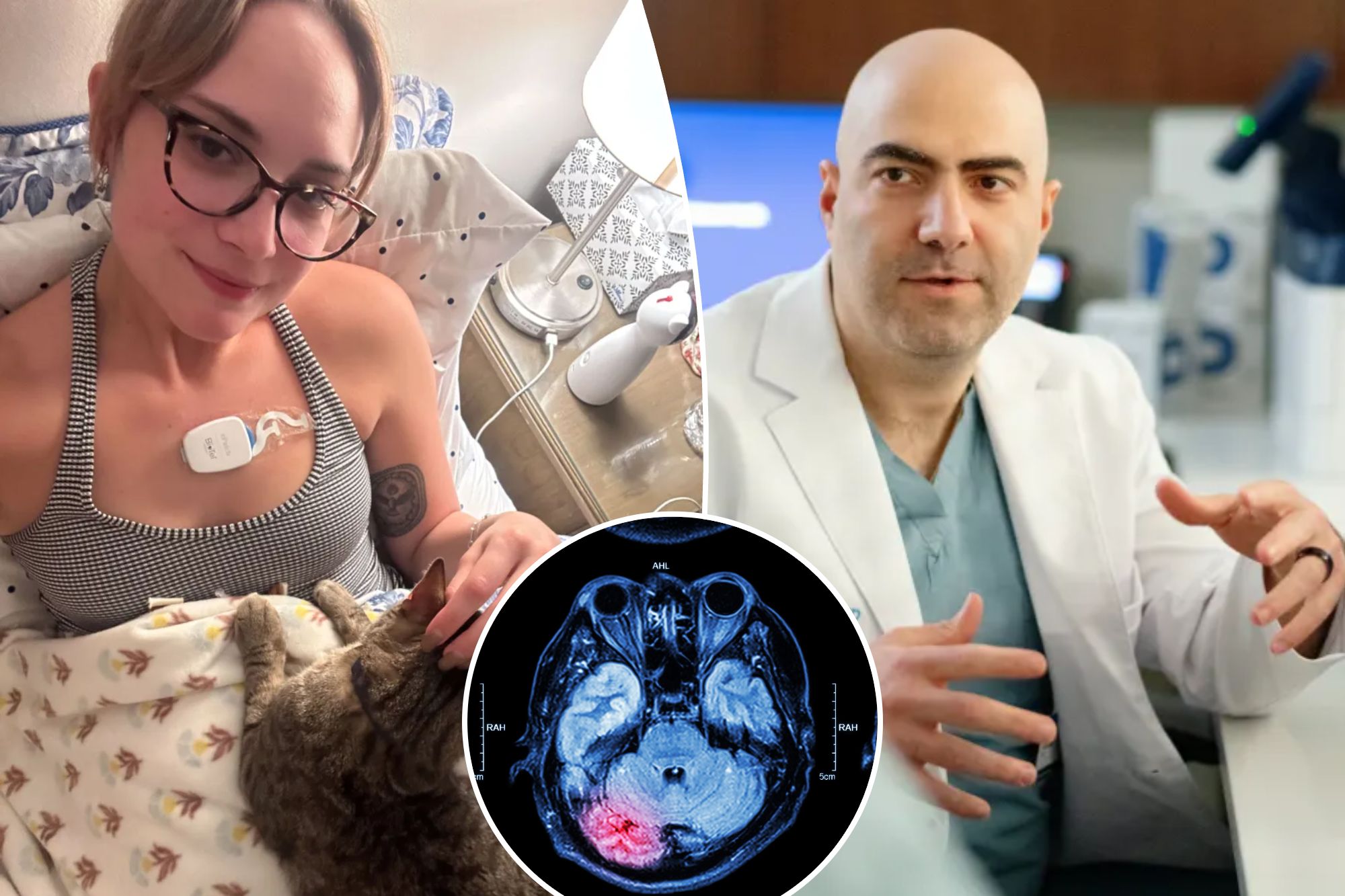
The shocks are increasing among young people, with a recent CDC ratio that detects a 14.6% increase among people aged 18 44 from 2020 to 2022.
While the alarming trend has been obstructing medical professionals, an expert has shared several intriguing theories with the post.
“We’ve never had such young patients,” said Dr. Mohammad Anadani, Chief of Neuroendovascular Services for the Institute of Enderant Health Neurosciences.
“We don’t think of 20-year-old patients. We feel more pressure when we care about these patients because they are so young.
Anadan recently treated not one, but two extremely young adults who had a stroke – Ann Fulk, 24, and Aubrey Hasley, 23.
Their blows came as a great surprise, well, all – especially since both were, according to all the usual, healthy standards.
Anadan believes that both of their strokes were embolic – meaning that they originated elsewhere in the body and traveled in the brain instead of forming directly into the blood vessels of the brain.
“Both were receiving oral contraceptives, who are known to increase the risk of stroke,” he said, pointing out that Aubrey had an oval foramen (PFO) patent, or a hole in her heart, which was likely to contribute to her stroke allowing a clot to bypass the lungs and travel in the brain.
“As for the overall increase in shock among young adults, the exact reasons are not fully understood,” he said.
However, it is likely to be associated with an increase in traditional factors of cerebrovascular risk such as hypertension, diabetes, high cholesterol and overweight.
“Lifestyle factors such as increased stress, long hours of work and physical inactivity have also been suggested as contributing factors.”
But there are other factors that may be in the game. Fulk noted that she was working hard at the time of her hit and, as a result, consuming much caffeine.
The product she was drinking contains 200 mg of caffeine – for cans. Experts recommend no more than 400 mg of caffeine a day to grow healthy.â
“While there is no clear evidence that directly connects energy beverages with stroke, some studies have reported an increased risk of hypertension and cardiac arrhythmias, such as atrial fibrillation, accompanied by their use,” Anadani said.
“These conditions are well known risk factors for stroke, so it is reliable that energy drinks can contribute to an elevated risk, especially in vulnerable individuals,” he noted.
Indeed, Scarsdale’s cardiologist and Tiktok star Dr Evan Levine has previously told the post that he considers energy drinks as one of the four worst drinks for heart health.
Levine also shows the finger in the popularity of Adderall and the ease with which it can be dealt with – especially with the growth of telecommunications companies.
“In April 2024, they find out that when you follow them for eight years, healthy young people aged 20 to 40, they have a 57% higher risk than young people healthy not in these medications,” Levine previously told the post.
Anadan thinks this theory is perhaps a strong.
“As far as Adderall is concerned, the tests are mixed. While most studies did not show a strong link between the use of Adderall and the stroke, some studies did,” he said,
“While the energy drinks and Adderall could play a role in increasing shock among young adults, they most likely contribute to a lower degree than the most determined risk factors, such as overweight, physical inactivity and chronic stress.”
#Doctor #causing #strokes #stroke #cases #young #people
Image Source : nypost.com